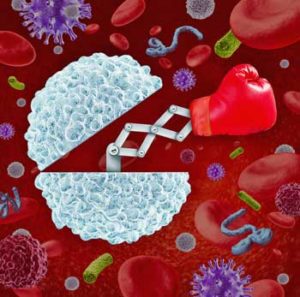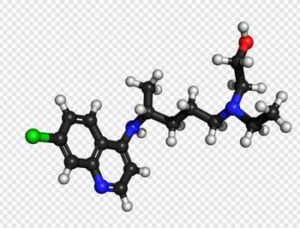The medical world has reacted to the SARS-CoV-2 pandemic (often referred to by the condition it causes (COVID-19)) with astonishing speed. As of April 6th, the clinicaltrials.gov site – the database for clinical trials occurring all over the world – lists 290 studies underway or about to begin.
First a cautionary note as the number of coronavirus trials explodes. The odds are that the vast majority of trials will fail. The hope is that few will succeed and form the basis for a treatment protocol. During times like this, though, many things are tried – some of which might not have been tried is less trying circumstances.
“Many drugs we believed were fantastic ended up killing people,” Dr Andre Kali” regarding the untested drugs given to suffering Ebola patients by doctors trying to help. All the drugs ultimately failed in clinical trials.
Some of the drugs getting more interest are listed below.
- 4/14 Update – in just over a week the number of coronavirus clinical trials jumped by over a 100 to 305.
- 4/21 Update – Coronavirus clinical trials now number 386.
Diagnostics
Antibody Tests
Antibody tests are cheap and easy to manufacture. Because they measure a persons immune response to the virus – in the form of the antibodies they’ve made – which takes some time to kick in, they can’t tell if someone has recently been infected. They can. however, identify people who’ve been infected, have presumably built up immunity to the virus, and can go back to work or interact safely with others. Widespread antibody testing will also tell us how widespread the virus is and how many asymptomatic people have been passing it on.
Update 4/14
- Seventy (!) companies/groups have come forward with antibody tests. Antibody tests, it should be noted, can, just like the PCR tests being used now, have problems with accuracy. No antibody tests have been FDA approved for regular use. One has been approved for emergency use.
- NIH home antibody trial – volunteers needed – to use a home kit. Those who have already been infected with the virus are not eligible.
Update 4/21
- Messy science – Stanford antibody results suggest that the virus may be found in 50 to 85 times more people than previously thought or up to almost 5% of the population. The study, then got slammed by some statisticians for poor methodology, but then a Los Angeles study found a similar rate of infection. The fact that both studies used the same Chinese antibody test introduces another possible confounding factor. Stay tuned! New York, Germany, the NIH – and others are in the middle of their antibody tests.
- Home antibody test approved – FDA approves LabCorp’s in-home antibody test – a first. The test will first be used for healthcare workers and patients who’ve gotten a recommendation from their doctor.
- World Health Organization warns that only 2-3% of people in the world have antibodies to the virus, leaving a huge chunk of the population vulnerable.
Trials In Progress
In March the Gates Foundation. Wellcome Trust and Mastercard funded the COVID-19 Therapeutic Accelerator to the tune of $125 million to identify, test, and ultimately manufacture helpful drugs for the coronavirus.
Remdesivir
Remdesivir is a broad spectrum antiviral drug which targets RNA polymerase – the enzyme RNA viruses like the SARS-CoV-2 use to replicate. The European Medicines Agency (EMA) recommended remdesivir be used in compassionate use programs which allow doctors to prescribe the drug.
Remdesivir worked very well against Ebola in rhesus macaques but monoclonal antibody drugs proved to be more effective. The drug inhibits SARS-CoV-19 in the laboratory.
- Check out a podcast on Remdesivir here.
Trials – Its maker, Gilead, has been working with researchers and governments around the world to get clinical trials up and running. Six large studies are in progress, with the first, in severely ill patients in China, due to finish as early as April 3, according to a government website. A study in patients with milder disease will also finish in April, with two more due in May.
4/13 – Update
An early analysis of 53 people taking remdesivir, half of whom were on ventilators, was promising as 68% improved and half were taken off the ventilator. Because there was no control group, however, we don’t know how effective the drug is; i.e. how many people would have gotten better without taking the drug.
4/21 Update
- Gilead expands testing remdesivir dramatically after early promising results. The drug will now be tested in thousands of people in over 120 sites.
Hydroxychloroquine (Plaquenil) and Chloroquine
Hydroxychloroquine is an inexpensive, generic drug that can be produced by compounding pharmacies which is used to treat malaria and lupus. A survey of over 6,000 doctors gave the drug their top choice for treating COVID-19.
A small French study seemed to indicate that combining hydroxychloroquine with azithromycin decreased coronavirus levels. STAT points out, though, that the French study had such significant methodological problems (not randomized, inappropriate control group) that a London statistician reported the trial “gave very little useful information about whether hydroxychloroquine might help”.
STAT News reported that a Chinese study was better, but that the results were still “compatible with a wide range of possible effects”; i.e. “Nobody knows whether the drug helps or not.”
Two days ago a Parisian study found the drug provided no benefit. Check out a doctor’s review of the evidence here.
With runs on Plaquenil limiting access to the drug for people with lupus and other conditions, Andrew Cuomo in New York and Nevada are limiting new prescriptions of the anti-malarial drugs to patients with previously approved FDA conditions and to coronavirus patients participating in state-sponsored experiments.
Trials
Many trials are now underway. Doing in 3 or 4 days what usually takes 6-9 months, New York announced that it’s testing three medications — hydroxychloroquine and chloroquine in combination with the antibiotic azithromycin. Similarly, the Henry Ford Health Foundation in ten days produced its large-scale (n=3,000) hydroxychloroquine trial to treat first responders and health care workers.
- Trials – As of April 6th, over twenty hydroxychloroquine studies have popped up in countries ranging from the Brazil to France to Norway to the U.S. (Boston, Tucson, L.A., Fresno, New York, Minneapolis and Seattle). Five are currently recruiting. Check them out here.
4/13 – Update
- In a week the number of hydroxychloroquine studies has almost doubled to 38.
- France, however, released a report indicating that when used for COVID-19, the drug may negatively affect the heart, (The report listed 43 cases of heart incidents).
- A Brazilian trial using a higher dose of the drug was halted after participants developed higher heart rates.
- On the other hand, Long Island doctors reported they’d had really good results with the drug and that a journal publication is pending.
- Prices for a basic component used by compounding pharmacies skyrocketed 350%. Most pharmacies, however, are not seeing a large increase in prices.
4/21 Update
- More deaths – Large Veterans administration study (n=386) found no benefits and increased deaths from coronavirus patients given hydroxychloroquine.
- Novartis Begins Trial – meanwhile Novartis gets approval to start its own large (n=440) trial
- Most used but not best drug? – Doctors now rate antibody-rich plasma as the most effective way to treat the coronavirus.
Antibody-Rich Plasma
Providing antibody-rich plasma from those who have recovered has been used successfully in other epidemics. One recent study from China reported that of 10 patients given convalescent plasma, seven saw their viral loads become undetectable; it also noted other improvements in their condition.
On Tuesday, the Food and Drug Administration approved the use of plasma from recovered patients to treat some severe cases and New York will begin testing serum from people who have recovered from the virus to treat those who are seriously ill.
- Trials – 19 plasma studies (as of April 6th) are underway or about to begin around the world, including at least two sites in the U.S. and one in Quebec, Canada.
4/13 Update
- Check out a New York Times article on how an antibody “superdonor” is donating his plasma to help others.
- The National COVID-19 Convalescent Plasma Project is taking donations from recovered coronavirus patients
4/21 Update
- Plasma Bot – Microsoft launches Plasma Bot – a self screening tool that will help recovered patients learn if they qualify to donate their plasma.
Monoclonal Antibody Drugs
Monoclonal antibody drugs developed to fight autoimmune diseases can tame potentially deadly immune system over-reactions which result in “cytokine storms”. Cytokine storms are more likely with viruses like SARS-CoV-2, when they produce the lower respiratory infections. Uncontrolled cytokine storms that damage the lungs are believed to be responsible for some of the most serious cases of COVID-19.
Stat News reports that a small Chinese study found that Actemra reduced fevers and the need for oxygen. Trial results from a similar drug called Kevzara could be ready as early as April. Both drugs target the IL-6 cytokine.
- Trials – Four tocilizumab (Actemra) trials are underway or are about to begin. Five sarilumab (Kevzara) trials are underway or about to begin.
Colcichine
Colchicine is an inexpensive, anti-inflammatory, anti-gout drug which reduces uric acid levels. It’s being trialed in an attempt to reduce inflammation in the lungs associated with COVID-19.
- Trials – Three studies are underway or about to begin, one of which is a huge study (n=6000!) is underway in Montreal.
Thalidomide
Thalidomide is to treat leprosy and multiple myeloma. It’s being studied in China to determine if it could help with coronavirus-related pneumonia.
- Trials – Two thalidomide studies are about to begin.
Favipiravir
Favipiravir is an antiviral which appeared to do well in an early test and is being tested in China.
- Trials – Four Favipiravir studies are underway or about to begin.
Vaccines
4/21-Update
- Quickie vaccine? – Several vaccines are currently in trials. Virologist Ian Lipkin says a new vaccine, if it could surmount regulatory hurdles, could be ready in less than a year.
Drug Failures
Lopinavir-Ritonavir
The first, and surely not the last, major failure. Despite encouraging talk about the combination, a study published last week in China indicated these drugs provided no benefit compared to placebo.
Coronavirus Central – Resources From Health Rising
- Tracking – check out the multiplicity of ways the virus is being tracked: its spread, its infectious rate, the deaths it’s causing, efforts to model its effects.
- Advice From ME/CFS/FM Doctors and Researchers – ME/CFS/FM doctors and researchers give advice.
- Staying Safe – how to stay safe including: hand washing, nasal irrigation, disinfecting, making a mask, plus – is the virus being aerosolized? How long is the virus alive on different surfaces, and does the amount of virus present matter?
- Treatments – Check out the astonishing number of COVID-19 treatment trials underway.
- Apps – be part of the solution; use apps that help us understand the spread of the virus; plus, use apps that can warn you if you’ve been in contact with someone who is infected.






